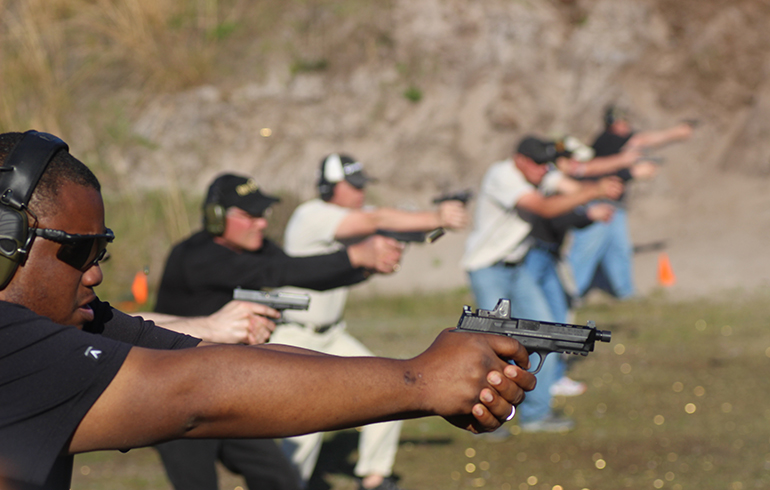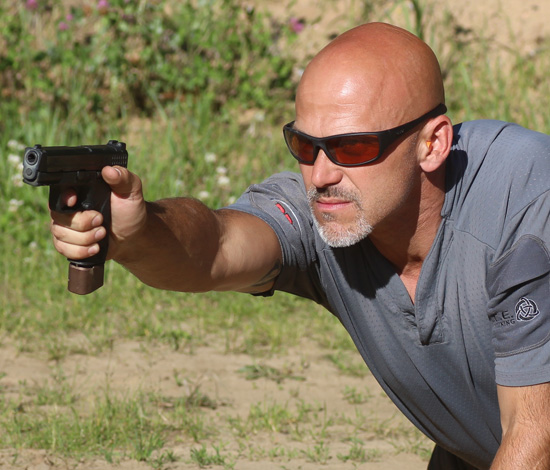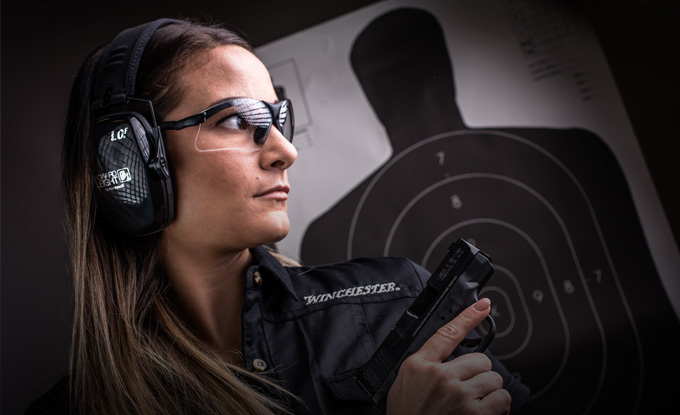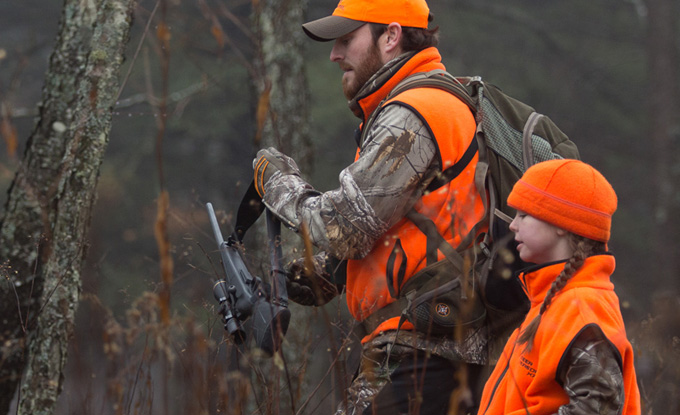Lateral Movement in Defensive Training
Earlier this week, World Champion Shooter Rob Leatham and I released another episode of our continuing “Worlds Collide” video series. It dealt with Shooting & Moving.
Both Rob and I agree that you generally don’t want to try shooting and moving at the same time during a defensive gun use: Plant & Shoot! But, what about the times that you are not actually shooting? When you are drawing your gun, when you are reloading or if you have to clear a malfunction, it probably makes a lot of sense to be moving.

In the real world, that movement may very well be directed towards moving behind concealment or cover. On the range, I teach people to move laterally while performing those tasks. In the absence of cover or any other position of advantage, Lateral Movement is going to be the best use of your energy and time.
Lateral Movement is defined in our Intuitive Defensive Shooting Courses as movement that is offline from the line of attack and which occurs between the time you know you need to shoot and you have the gun in a position (or condition) to be shot. Imagine that someone fires a shot at you while you are walking through a mall. Rather than just stand still while you get your gun out to defend yourself, Lateral Movement makes a slightly harder target. The movement might also get you behind a kiosk or into a store entrance the corner of which provides cover. At the very least, once you start moving, your attacker is going to start tracking your movement predictively and get thrown off when you stop suddenly to return fire.
The fact that humans track movement predictively is a huge part of why Lateral Movement in the way we teach it is a survival tactic. Once you take off in a linear direction offline from the line of attack, the bad guy is going to start jumping his eyes, pointing his and/or charging his body (in the case of a contact threat like a knife) to where he expects you to be, not to where you are. So, if you stop suddenly as you finish a reload or complete a presentation from the holster, you will most likely through them off for a short period of time. Of course, during that time, you are beginning to use your firearm as intended to stop the threat.
Learning to draw, reload and clear malfunctions while you are moving quickly should be considered a basic part of your defensive skill development… be sure to keep your eyes up on the target or looking around the environment for cover or obstacles!




